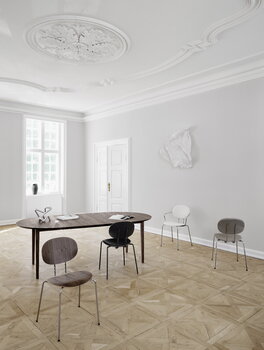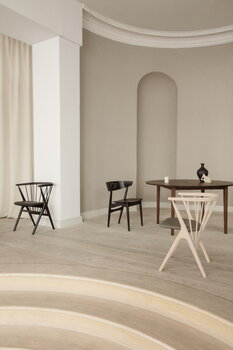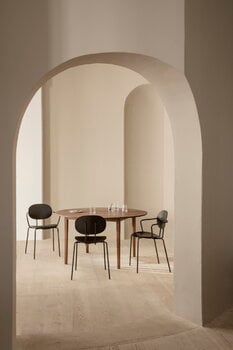The Sibast No 3 table was designed in 2018 for the Michelin Star restaurant Domestic, located in Aarhus, Denmark. Designers Anna and Ditlev Sibast drew inspiration for the table’s sleek look from the Sibast family design heritage and, particularly, the Sibast No 1 side table, designed by Ditlev’s grandfather Helge Sibast. Down to the last detail, the table is designed to provide diners with the most comfortable dining experience both at the restaurant as well as in private homes.
The Sibast No 3 table is a fine example of modern Danish craftsmanship, and it is part of the Sibast Furniture collection featuring Helge Sibast’s original works and new Danish design. The oak dining table is extendable; with one extension leaf, the length is 170 cm and with two leaves, the length is a whopping 220 cm.






























